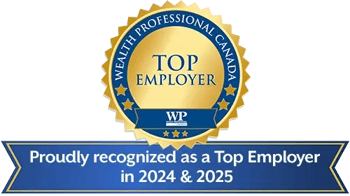Growing in Leaps and Bounds: Mini Mall Storage Properties Surpasses $100M AUM in Our First Year

The past year revealed some interesting aspects about what can withstand a pandemic or a recession — or both. Almost without exception, everyone grappled with upheaval to their daily lives — and confirmed some of what we’ve always known: our strategy for investing in class B and C assets, the mom-and-pop operations that are often overlooked, is sound.
“We invest in something tangible. Everyday, overlooked, hard assets,” says Adam Villard, CEO of Mini Mall Storage Properties.
When Mini Mall launched a year ago, the COVID-19 pandemic was just on the horizon. We had yet to feel the full impact of widespread lockdowns and the recession that followed. But as the situation evolved, our strategy remained the same: focus on fundamentals, invest methodically, and continue to do what we know works.
The people behind Mini Mall play a huge part in its success, says Villard. “We’ve developed a top-notch operations team, which includes a call centre and a robust operations team. And we have an acquisitions team that is second to none in Canada.”
The acquisition team has been key to helping Mini Mall achieve its strategy, especially in terms of consolidating a fragmented industry. Self-storage facilities in Canada are often operator-owned, “mom-and-pop” businesses that lack the capital required for improvements to modernize their operations. In its first year as a trust, Mini Mall has acquired 27 properties and invested funds into capital improvements — often additional security and technology for more flexible payment options — in markets across British Columbia, Alberta, Saskatchewan, Manitoba, and Ontario.
“Our ability to inject capital into these projects is really key,” says Villard. Like Avenue Living Asset Management, Mini Mall focuses on class B and C assets — ones often overlooked by investors in favour of more expensive class A assets. “These smaller operations have capital constraints that don’t allow them to invest in things like gate controls, top-of-the-line software, or automation, but they do have the fundamentals of strong cash flow and operate in ‘fringe’ and rural markets that have less competition.”
The strategy mirrors that of Avenue Living, which invests in more “stable” class B and C multi-family residential and commercial in secondary markets and creates value through capital expenditures. The organization uses a vertically integrated platform of shared services to support its Trust offerings, which includes investments in real estate, commercial and agricultural land as well as self-storage.
“Our access to the Avenue Living platform has really helped us grow in leaps and bounds,” says Villard. The platform allowed the Trust access to legal expertise, call-centre capabilities, marketing services, and more, providing a valuable complement to our team of industry experts.
Villard says agility has been key to MMSP meeting its goals in its first year. “We’ve been able to truly bring in the latest and greatest cutting-edge processes and build an operation from the ground up, without worrying about legacy technology or processes.”
With one milestone reached, we’re looking ahead to the next couple of years. “We’ll continue the consolidation of assets across Canada,” says Villard, “and we’re aiming to push our assets under management above $300 million in the next two years or so. And we’ll continue to expand existing facilities with the development of buildings in markets that support growth and keep building on our best-in-class team, which can focus on the potential for long-term revenue gains and increasing efficiencies to reduce costs.”
This commentary and the information contained herein are for educational and informational purposes only and do not constitute an offer to sell, or a solicitation of an offer to buy, any securities or related financial instruments. This article may contain forward-looking statements. Readers should refer to information contained on our website at www.avenuelivingam.com for additional information regarding forward-looking statements and certain risks associated with them.


